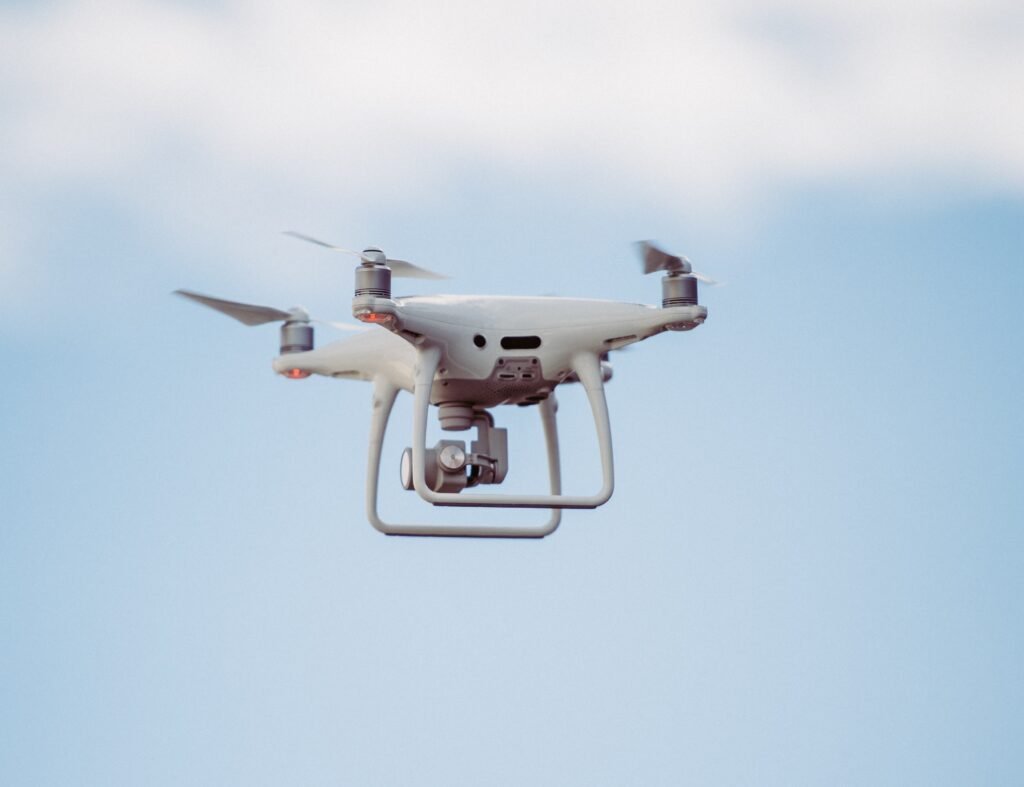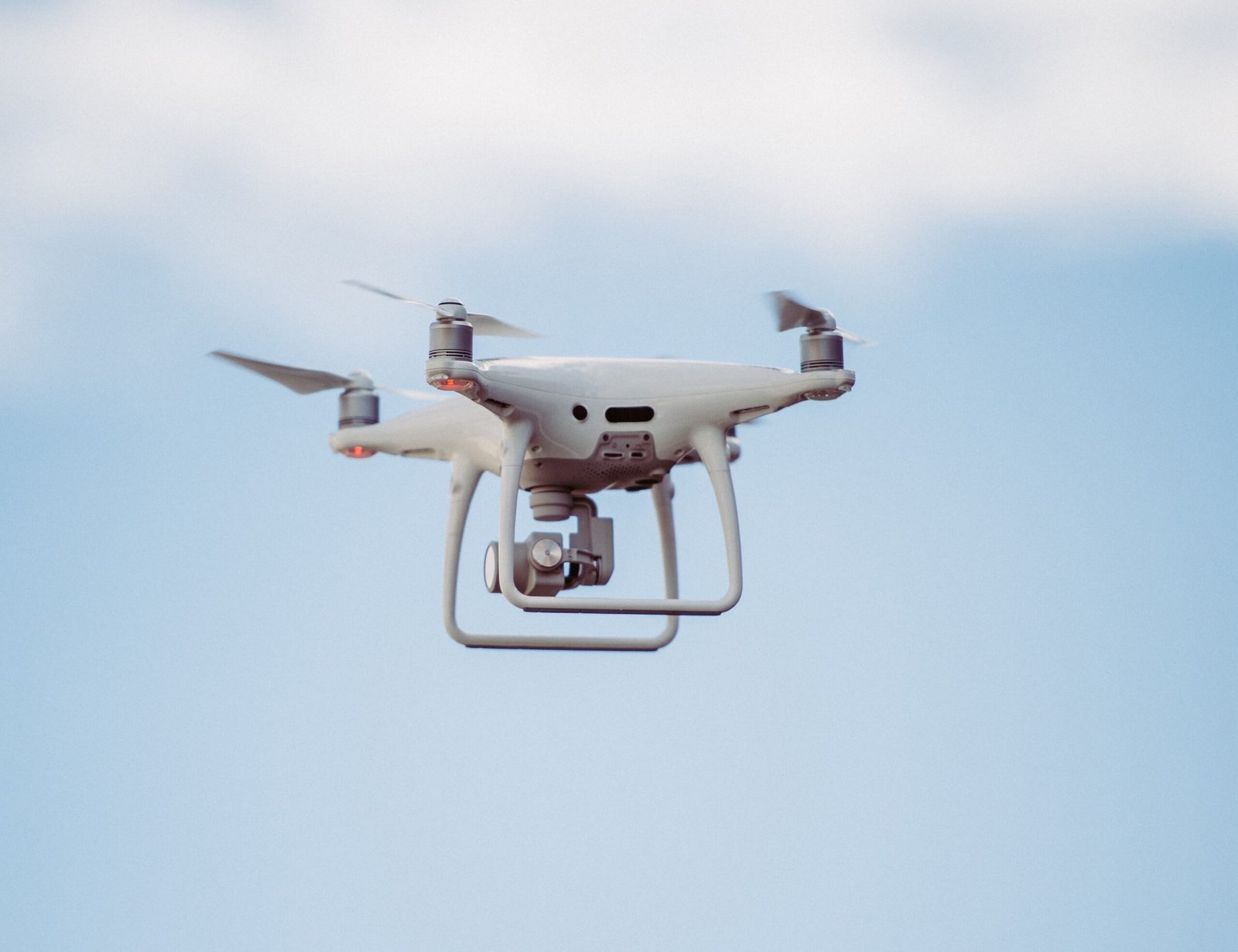Imagine a world where intelligent machines can outperform humans in almost every aspect of life. From diagnosing diseases with unheard of accuracy to revolutionizing transportation, artificial intelligence (AI) has the potential to change the world as we know it. However, as this technology continues to advance at a rapid pace, concerns are growing about its potential dangers. Are these fears justified? In this article, we will explore the potential risks and benefits of AI, and ultimately answer the question: is artificial intelligence dangerous?
Potential Risks of Artificial Intelligence
Job Displacement
Artificial intelligence poses a potential risk of job displacement as it has the capability to automate tasks that were previously performed by humans. While this can lead to increased efficiency and productivity, it also raises concerns about unemployment rates and income inequality. As AI technology advances, certain jobs may become unnecessary, particularly those that involve routine tasks and manual labor. It is essential to carefully consider the impact on employment and ensure measures are in place to support and retrain workers who may be affected by this displacement.
Economic Inequality
Another concern associated with artificial intelligence is the potential for economic inequality. As AI technologies become more prevalent, there is a possibility of a widening wealth gap between those who have access to and can benefit from these technologies, and those who do not. This could further exacerbate existing disparities in society, creating socio-economic divisions and stifling equal opportunities for all. Striking a balance between harnessing the benefits of AI and ensuring equitable distribution of wealth and resources is crucial to avoid deepening economic inequality.
Ethical Concerns
The rise of artificial intelligence raises a multitude of ethical concerns. One significant issue is the potential for AI systems to make ethical decisions or judgments. As AI algorithms learn from massive amounts of data, they may unintentionally adopt biases, discrimination, or reinforce societal prejudices. Ensuring the development of ethical AI systems that prioritize fairness, transparency, and accountability is of paramount importance.
Loss of Human Control
As AI systems become increasingly sophisticated and autonomous, there is a concern about the loss of human control over these technologies. The ability of AI to independently make decisions and carry out actions without human intervention raises questions of responsibility and accountability. It is essential to establish clear guidelines and safeguards to prevent AI systems from acting in a manner that is against human values or endangering human well-being.
Errors and Bias in Decision-Making
Artificial intelligence systems rely on algorithms to make decisions. However, these algorithms are not flawless and can be prone to errors, biases, and inaccuracies. For example, facial recognition algorithms have been found to have higher error rates for individuals with darker skin tones. Such biases can lead to unfair treatment and discrimination in various sectors, including hiring practices, criminal justice, and access to services. It is critical to continually evaluate and improve AI algorithms to minimize such errors and biases and ensure fair and unbiased decision-making.
Dangers of Artificial Intelligence in Warfare
Autonomous Weapons
One of the most concerning risks of artificial intelligence in warfare is the development of autonomous weapons. These weapons have the capability to operate without human control or intervention, raising significant ethical and humanitarian concerns. The use of autonomous weapons blurs the line between combatants and civilians, and the potential for indiscriminate harm is a cause for alarm. The international community must address the development and deployment of autonomous weapons, ensuring that human judgment and responsibility remain central to military engagements.
Lack of Human Judgment
In warfare, decisions that involve life and death are traditionally made by human beings who possess a sense of ethics, morality, and judgment. The reliance on AI systems, however, may remove the crucial element of human judgment, leading to actions that lack nuance, compassion, and understanding. The risks associated with handing over critical decisions to AI systems without human oversight must be carefully considered to avoid grave consequences and potential violations of international humanitarian laws.
Escalation of Military Power
Artificial intelligence has the potential to significantly escalate military power. The use of AI-powered military technologies can enhance capabilities in areas such as intelligence gathering, targeting, and strategic decision-making. While this can provide an advantage, it also raises concerns about an arms race and the potential for increased tensions between nations. To prevent the misuse of AI in warfare, international cooperation and agreements must be established to ensure transparency, limits on AI-enabled weaponry, and the prevention of an uncontrollable arms race.
Potential for Misuse or Hacking
Another significant danger of artificial intelligence in warfare is the potential for misuse or hacking of AI systems. If AI-powered military technologies fall into the wrong hands, they can be weaponized, leading to catastrophic consequences. Additionally, the vulnerabilities of AI systems to cyberattacks pose a significant risk. It is crucial to prioritize cybersecurity measures and establish robust safeguards to protect AI systems and prevent malicious actors from exploiting these technologies to inflict harm.

Privacy and Surveillance Concerns
Data Collection and Privacy Invasion
The widespread use of artificial intelligence relies heavily on the collection and analysis of vast amounts of data. This raises concerns about privacy invasion and the potential misuse of personal information. With AI systems becoming increasingly capable of extracting insights from personal data, individuals’ privacy may be compromised. It is essential to establish stringent regulations and data protection frameworks to safeguard individuals’ privacy and ensure that data collection and usage are conducted in an ethical and responsible manner.
Mass Surveillance
Artificial intelligence enables the implementation of mass surveillance systems, which can have far-reaching implications on individual freedoms and civil liberties. The ability of AI-powered surveillance technologies to monitor and analyze vast amounts of data, including facial recognition, social media monitoring, and location tracking, raises concerns about the erosion of privacy and the potential for government overreach. Striking a balance between public safety and individual privacy rights is crucial to prevent the abuse of AI-driven surveillance systems.
Manipulation and Influence
The ability of artificial intelligence to analyze large datasets and identify patterns can be leveraged to manipulate and influence individuals. From targeted advertising to social media algorithms that prioritize specific content, AI systems have the potential to shape opinions, behaviors, and decision-making processes. This raises concerns about the ethics of using AI for manipulative purposes and the need for transparency and user empowerment to mitigate the negative effects of such manipulation.
Threats to Democracy
The use of artificial intelligence in political contexts poses threats to democracy. AI systems can be harnessed to spread misinformation, manipulate public opinion, and disrupt electoral processes. The potential for AI technologies to undermine the integrity of democratic systems and influence electoral outcomes requires robust regulation and safeguards. Upholding democratic values, transparency, and accountability are essential to protect the integrity of political processes in the age of artificial intelligence.
Social and Psychological Impact
Replacement of Human Interaction
The increasing integration of artificial intelligence into various aspects of daily life raises concerns about the replacement of human interaction. As AI-powered chatbots and virtual assistants become more advanced, there is a risk of individuals relying heavily on these technologies for communication and companionship. This may result in a decline in real, meaningful human connections and a sense of isolation. Striking a balance between utilizing AI for efficiency and ensuring the preservation of human interaction is essential for societal well-being.
Emotional Disconnect
Artificial intelligence lacks emotional intelligence, empathy, and the ability to understand complex human emotions. The reliance on AI systems for emotional support or decision-making can lead to an emotional disconnect between individuals and machines. This can have profound consequences on mental health and well-being, as human beings inherently crave emotional connection and understanding. It is vital to recognize the limitations of AI in the realm of emotional intelligence and foster environments that prioritize authentic human connections.
Increasing Dependence on Technology
As artificial intelligence becomes more pervasive, there is a risk of society becoming overly dependent on technology. From automated systems in transportation to smart homes and AI-powered personal assistants, reliance on AI can lead to a loss of critical skills and self-sufficiency. It is crucial to promote digital literacy and ensure individuals have the knowledge and skills to use AI technologies effectively, while also encouraging the preservation of essential human abilities and fostering a healthy relationship with technology.
Societal Isolation
The advancements in artificial intelligence can inadvertently contribute to societal isolation. As individuals spend more time engaging with AI-powered devices and platforms, there is a risk of social isolation as face-to-face interactions and community engagement decline. Creating opportunities for meaningful human connections, promoting inclusivity, and encouraging the utilization of AI technologies for beneficial social interactions are crucial in mitigating the risks of societal isolation.

Economic Implications
Job Polarization
With the increasing adoption of artificial intelligence, job polarization becomes a concern. AI systems tend to excel at specific tasks that can be automated, leading to potential job loss in those areas. This can result in a significant shift in the labor market, where highly skilled jobs that require creativity, problem-solving, and emotional intelligence are in demand, while low-skilled jobs that can be easily automated experience a decline. It is vital to address this polarization by providing opportunities for skill development and ensuring that individuals are prepared for the changing job landscape.
Replacement of Workers
The automation potential of artificial intelligence is a cause for concern for workers across various industries. Jobs that involve repetitive tasks, data analysis, or physical labor are at risk of being replaced by AI-powered systems. This raises questions about the future of work and the need to retrain and upskill individuals in sectors that may be heavily impacted. A proactive approach to reskilling and job transition programs is essential to minimize disruption and ensure a smooth transition into new employment opportunities.
Income Disparity
The impact of artificial intelligence on income disparity is a pressing issue. The potential for certain industries and professions to benefit significantly from AI technologies while others suffer from job loss can lead to an increase in income inequality. It is essential to implement policies that promote equitable distribution of wealth, ensure a fair playing field for all individuals, and address the potential widening of the income gap caused by the advent of AI. Supporting social safety nets and reevaluating economic structures may be necessary to mitigate the negative economic consequences.
Lack of Skill Development
As AI technology advances, it becomes crucial for individuals to continually acquire new skills to adapt and thrive in the changing job market. However, there is a concern that the rapid pace of AI development may outpace individuals’ ability to develop new skills. Addressing this issue requires investments in education and training programs that equip individuals with the skills required to work alongside AI technologies. Nurturing a culture of lifelong learning and providing accessible pathways for skill development is essential to ensure individuals can navigate the evolving economic landscape.
Artificial Superintelligence and Existential Risks
Potential for Superintelligence
Artificial superintelligence refers to AI systems that surpass human intelligence across all domains. While still speculative, the potential for the development of superintelligent AI raises existential risks. Superintelligent AI could surpass human control and understanding, potentially leading to unforeseen consequences or actions that may conflict with human values. Thorough research and evaluation of the implications of superintelligence are necessary to understand the associated risks and ensure that the development of AI systems remains aligned with human goals and values.
Control Problem
The control problem in artificial intelligence refers to the challenge of developing AI systems that align with human values and goals. As AI becomes more autonomous and capable of making its own decisions, ensuring human control and preventing AI systems from acting in ways that are harmful or contrary to human well-being becomes crucial. Solving the control problem requires research, robust ethical frameworks, and careful engineering to design AI systems that are aligned with human values while minimizing the risks of unintended consequences.
Unintended Consequences
Artificial intelligence has the potential to produce unintended consequences that may have far-reaching impacts. As AI systems operate based on complex algorithms and learn from vast amounts of data, it becomes challenging to predict their behavior accurately. These unintended consequences can range from algorithmic biases and discrimination to unforeseen ethical dilemmas. Rigorous testing, evaluation, and ongoing monitoring of AI systems are necessary to identify and address these unintended consequences, ensuring that AI technology remains beneficial and safe.
Risk of Extinction
While it may seem like science fiction, there is a concern that the development of superintelligent AI could pose an existential risk to humanity. These risks could include scenarios where AI systems surpass human control, act against human interests, or even intentionally cause harm to humanity. Mitigating the risks of superintelligent AI requires careful consideration, international collaboration, and the development of robust safety measures to prevent catastrophic outcomes. Ensuring that AI development is aligned with human values and goals is crucial to avoid existential risks.

Ethical Considerations in Artificial Intelligence
Accountability and Responsibility
Ethical considerations in artificial intelligence include establishing clear lines of accountability and responsibility for the actions and decisions of AI systems. Ensuring that there are mechanisms in place to address the consequences of AI system failures or unethical behavior is essential. This includes identifying who is responsible for the actions of AI systems and establishing channels for redress and accountability when harm or wrongdoing occurs.
Transparency and Explainability
Transparency and explainability are crucial ethical considerations in artificial intelligence. As AI systems make decisions that impact individuals or society as a whole, it becomes essential to understand the reasoning behind these decisions. AI algorithms and systems should be designed in a way that allows for transparency and explainability, ensuring that individuals can understand and challenge the outcomes and biases of AI decisions.
Bias and Discrimination
Preventing biases and discrimination in artificial intelligence is critical to ensuring fairness and equity. AI systems learn from data, and if that data contains biases or reflects societal prejudices, the AI system may unintentionally perpetuate those biases. Ethical considerations include developing AI systems that are bias-aware, regularly auditing and evaluating algorithms for discriminatory outcomes, and actively seeking to reduce and mitigate biases within AI technologies.
Ensuring Fairness and Privacy
AI systems have the potential to impact individuals’ lives in various domains, including employment, healthcare, and criminal justice. Ensuring fairness in the design and deployment of AI systems is essential to prevent unjust outcomes. Additionally, privacy considerations are crucial, as AI relies on vast amounts of data. Safeguarding individuals’ privacy rights, establishing clear guidelines for data usage and protection, and ensuring consent and individual autonomy are vital ethical considerations.
The Need for Regulations and Safeguards
Government Oversight
Given the potential risks and societal impact of artificial intelligence, effective government oversight is crucial. Regulations should be established to ensure ethical and responsible development and deployment of AI technologies. This includes monitoring AI systems for biases or unintended consequences, setting standards for data privacy and protection, and implementing accountability mechanisms for AI developers and users.
Ethical Frameworks
The development of AI technologies should be guided by robust ethical frameworks. Ethical considerations should be incorporated into the entire AI life cycle, from design and development to deployment and use. Establishing clear ethical guidelines and principles can help ensure AI systems align with human values, promote fairness and transparency, and minimize the risks associated with AI technology.
International Collaboration
Artificial intelligence is a global issue that requires international collaboration. To effectively address the risks and challenges associated with AI, countries must work together to establish common standards, share best practices, and develop global regulations. International collaboration can help prevent a race to the bottom, facilitate knowledge exchange, and ensure that AI technology is developed and used in a responsible and beneficial manner.
Preventative Measures
Preventing the dangers associated with artificial intelligence requires proactive measures. This includes investing in research and development to foster safe and beneficial AI technologies, conducting comprehensive risk assessments, and establishing mechanisms for ongoing evaluation and monitoring of AI systems. By identifying potential risks and implementing preventative measures, it is possible to minimize the negative impacts of AI while maximizing its potential benefits.
Combating the Dangers of Artificial Intelligence
Research and Development
Investing in research and development is crucial to combat the dangers of artificial intelligence. Continued exploration of AI technologies and their potential risks and threats allows for the development of robust solutions and safeguards. Research should focus on understanding AI’s limitations, evaluating potential risks from different perspectives, and identifying ways to address these risks effectively.
Ethical Design and Standards
Incorporating ethics into the design and development of AI systems is essential to combat potential dangers. Ethical considerations should be integrated into AI design processes from the outset, ensuring that AI technologies align with human values and promote fairness, transparency, and accountability. Establishing ethical standards and guidelines can serve as a framework for responsible AI development and use.
Education and Awareness
Promoting education and awareness about artificial intelligence is crucial in combating its dangers. Educating individuals about the potential risks, benefits, and ethical implications of AI can empower them to make informed decisions and actively participate in shaping AI development and deployment. Raising public awareness can help foster a critical and ethical approach to AI and ensure societal engagement in discussions and policy-making related to AI technology.
Collaborative Efforts
Combating the dangers of artificial intelligence requires collaborative efforts from various stakeholders, including governments, industry leaders, researchers, and civil society. By bringing together diverse perspectives and expertise, collaborative efforts can shape AI governance, establish ethical standards, and develop policies that prioritize human well-being. By working together, we can address the risks and maximize the potential benefits of artificial intelligence.
Beneficial Applications of Artificial Intelligence
Improved Efficiency and Productivity
Artificial intelligence has the potential to significantly enhance efficiency and productivity across various industries. From streamlining processes and automating repetitive tasks to optimizing resource allocation, AI can help organizations achieve higher levels of productivity and effectiveness. By augmenting human capabilities, AI technologies can free up time and resources, allowing individuals to focus on more complex and creative tasks.
Enhanced Healthcare and Medicine
Artificial intelligence has transformative potential in the field of healthcare and medicine. AI-powered systems can analyze complex medical data, assist in diagnosis, and support treatment planning. From early detection of diseases to personalized medicine, AI can help improve patient outcomes, enhance medical decision-making, and expand access to healthcare services. By leveraging AI technologies, healthcare professionals can provide more accurate, efficient, and targeted care.
Smarter Cities and Infrastructure
Artificial intelligence can contribute to the development of smarter cities and infrastructure. With the ability to analyze vast amounts of data, AI can optimize urban planning, transportation systems, and energy management. AI-powered systems can improve traffic flow, reduce congestion, enhance energy efficiency, and contribute to sustainable urban development. By harnessing AI technologies, cities can become more livable, environmentally friendly, and responsive to the needs of their residents.
Scientific Advancements
Artificial intelligence has the potential to revolutionize scientific research and discovery. AI algorithms can analyze large datasets, identify patterns, and accelerate scientific advancements in fields such as genomics, astronomy, and climate modeling. AI technologies can assist scientists in data analysis, hypothesis generation, and experimental design, enabling new insights and breakthroughs. By augmenting human intelligence, AI can unlock new frontiers in scientific knowledge and contribute to solving complex global challenges.
In conclusion, while artificial intelligence holds immense potential for transformative advancements across various domains, it is crucial to recognize and address the potential risks and dangers associated with its development and deployment. From job displacement to ethical concerns, the dangers of AI in warfare, privacy and surveillance concerns, and social and psychological impacts, there are numerous aspects that require careful consideration. Additionally, the economic implications, risks of artificial superintelligence, ethical considerations, and the need for regulations and safeguards highlight the importance of responsible AI development. By actively combating these dangers through research, ethical design, education, and collaborative efforts, we can harness the power of artificial intelligence for the betterment of society, while minimizing the risks and ensuring a safe and equitable future.






